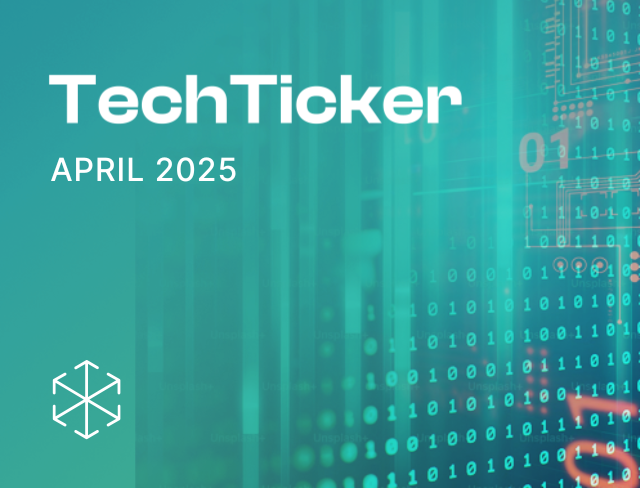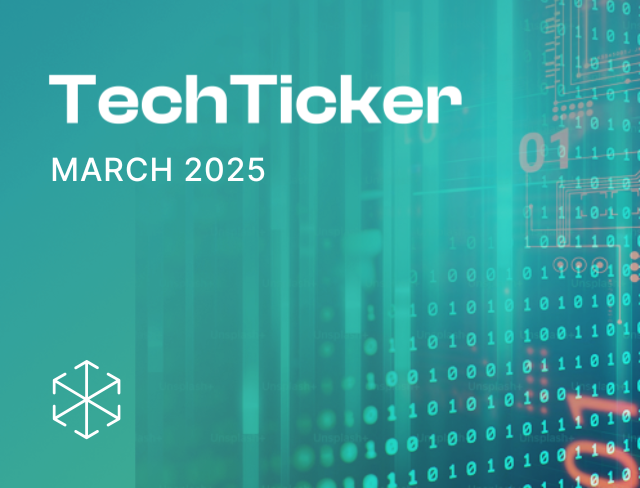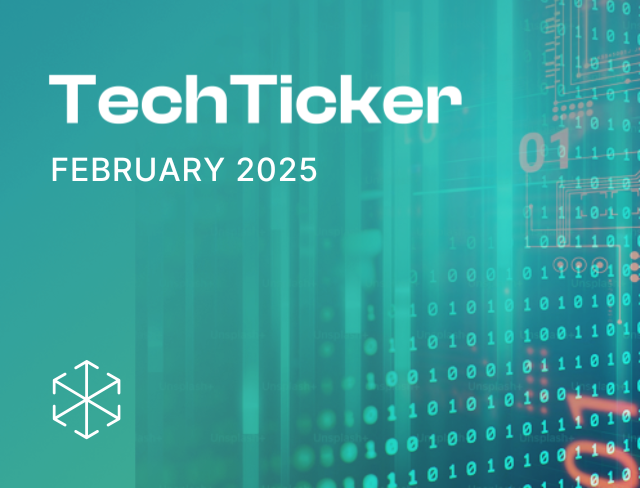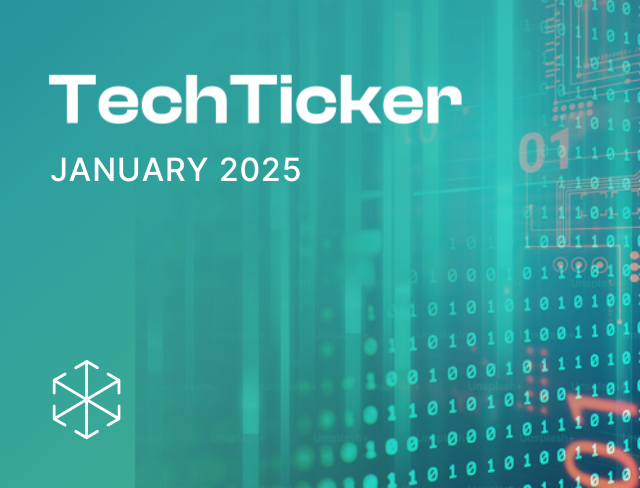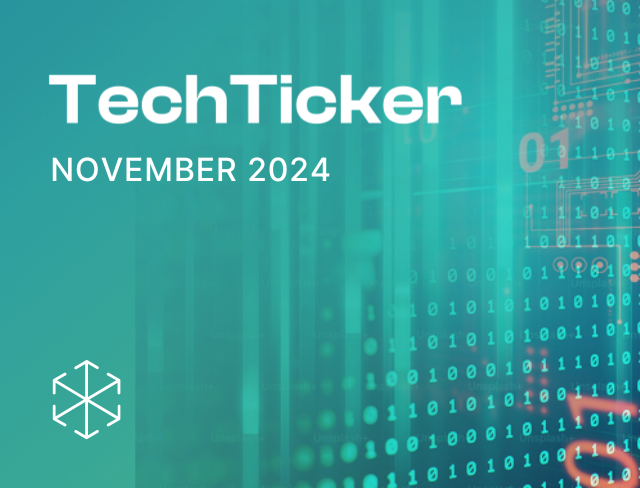To regulate or not to regulate, that is the question. But there are no easy answers. This edition of the tech-ticker covers global AI developments, and also discusses how regulators are increasing scrutiny across digital sectors including content OTTs and communications OTTs.

US takes the lead in the race to regulate AI: Generative AI and ChatGPT are undoubtedly in the running for being words of the year 2023. While AI has captured everyone’s attention, regulating AI is the new hot-button issue that governments across the world are grappling with. While the United Kingdom was looking to push for a global census on regulating AI with its Global AI Safety Summit that happened on November 1-2, 2023, the United States Government passed an Executive Order for the safe development of AI just before that. US President Joe Biden stated that the Executive Order on the Safe, Secure, and Trustworthy Development and Use of Artificial Intelligence will help America ‘lead the way’ in this era of fast-paced technological change.
The Order requires US federal agencies to set safety standards for AI systems. It requires developers to share the results of safety tests along with other critical information with the US government. The Executive Order sets the tone on the need for AI regulation - without which, President Biden noted, it will not be possible to realise the promise of AI.
The Order sets out the functions of various US regulatory agencies in ensuring the safe deployment of AI. This includes the National Institute of Standards and Technology creating standards to ensure AI tools are safe and secure before their public deployment. The Commerce Department is also required to set out guidelines for labelling and watermarking AI-generated content.
The Order aims to embed American leadership in AI regulation. It centres privacy, equity, civil rights, consumer protection, innovation and competition as the metrics that direct safe development and deployment of AI systems.
Mini-splainers
● CCI’s market study on impact of AI- The Competition Commission of India (CCI) is planning to conduct a market study on the impact of AI on competition in the Indian market. This will include looking at the possibility of anti-competitive practices occurring in the realm of AI and understanding how to tackle the same. CCI Chairperson Ravneet Kaur also stated that the market study will aim to understand if self-regulation is a possibility in the sector. Generally, market studies help regulators identify issues or challenges in specific sectors. These studies tend to look into issues that can range from barriers to entry and anti-competitive practices to consumer protection concerns. The proposed market study indicates that the CCI is paying attention to potential challenges that might arise because of the increasing adoption of AI. While the scope and breadth of the study are yet to be revealed, the study is likely to act as a foundation for regulatory intervention by the CCI.
● Stormy waters ahead for safe harbour? - The Digital India Bill is likely to make safe harbour immunity for intermediaries the ‘exception’ rather than the norm on the internet. While the government’s exact approach towards creating this exception is not yet known, it is going to impact a core feature of the internet that helped in the growth of the digital economy. Without safe harbour, platforms are likely to over-regulate content and restrict free-flow of information in order to avoid liability for actions of third-parties. This is also likely to have a disproportionate impact on smaller internet platforms who cannot deploy the resources required to meet the potentially higher threshold for securing immunity. Safe harbour immunity protects an intermediary from being held liable for third-party content on its platform if the intermediary has adequately fulfilled its due diligence requirements. This has consistently been highlighted by the government as being a major reason for increasing cyber harms on the internet.
● Tussle over OTT’s displaying anti-tobacco warnings - Recently, the Ministry of Health and Family Welfare (MoHFW) reiterated that OTT platforms must strictly follow the Cigarettes and other Tobacco Products (Prohibition of Advertisement and Regulation of Trade and Commerce, Production, Supply and Distribution) Amendment Rules, 2023 (OTT Rules). The Ministry’s statement comes against the backdrop of a news report that the MoHFW had granted leeway in implementing the OTT Rules. MoHFW has now clarified that OTT platforms have to compulsorily display anti- tobacco health spots, anti- tobacco health warning as a prominent static message and audio-visual disclaimer on the adverse effects of tobacco use.
The OTT Rules were notified on 31 May 2023, and OTT platforms had to implement them from 1 September 2023. The rules mandate platforms displaying tobacco products or their use to carry anti-tobacco health spots, anti-tobacco warning messages and disclaimers on the negative effects of tobacco. If OTT platforms fail to comply, then they become liable to face action by an inter-ministerial committee consisting of representatives from the Ministry of Health and Family Welfare, Ministry of Information and Broadcasting and Ministry of Electronics and Information Technology. The inter-ministerial committee can act on its own or based on any complaint notified to them. The Ministry’s recent statement clarifies that OTT platforms are required to immediately display anti-tobacco warnings and that the Ministry will be strictly overseeing this compliance.
What do OTT platforms have to say? - OTT platforms have consistently highlighted the need to differentiate their platform from traditional media such as cinema and TV. Mandating OTT platforms to display anti-tobacco warnings treats two different types of media on par (Read our piece on this here and here). This imposes heavy costs and negatively impacts OTT platforms requiring them to retrospectively integrate anti-tobacco warnings in the content available on their platform. OTT platforms have also raised the concern that the anti-tobacco directives will ‘hit customer experience’.
● Deep concern for deepfakes - The Central Government is considering enforcing user traceability requirements against WhatsApp in light of concern over multiple deepfake videos of politicians that have been circulating on the platform. The Information Technology (Intermediary Guidelines and Digital Media Ethics Code) Rules, 2021, under Rule 4(2), enable the government to seek social media platforms offering messaging services to trace identities of first originators of a message. Since the implementation of the IT Rules 2021, this is perhaps the first instance of the provision being invoked. Interestingly, Whatsapp and Facebook had challenged Rule 4(2) when the IT Rules, 2021 were notified, with the same still being pending. The challenge noted that Rule 4(2) violates the right to privacy that was recognised by the Supreme Court in Justice KS Puttaswamy v. Union of India in 2017. If the Central Government goes ahead with enforcing the user traceability requirement, it is possible that the Courts might be prompted to take up the pending petition soon to decide on the constitutional challenge against the IT Rules 2021.
That’s it from us. See you next month. If you enjoyed reading TechTicker, do share it.

